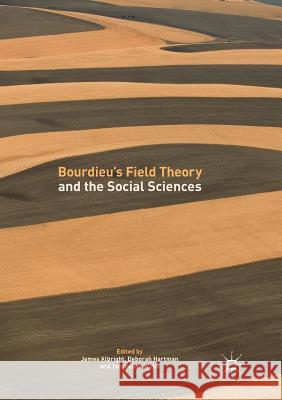Bourdieu's Field Theory and the Social Sciences » książka
topmenu
Bourdieu's Field Theory and the Social Sciences
ISBN-13: 9789811353833 / Angielski / Miękka / 2018 / 299 str.
Kategorie:
Kategorie BISAC:
Wydawca:
Palgrave MacMillan
Język:
Angielski
ISBN-13:
9789811353833
Rok wydania:
2018
Wydanie:
Softcover Repri
Ilość stron:
299
Waga:
0.39 kg
Wymiary:
21.01 x 14.81 x 1.75
Oprawa:
Miękka
Wolumenów:
01
Dodatkowe informacje:
Wydanie ilustrowane











